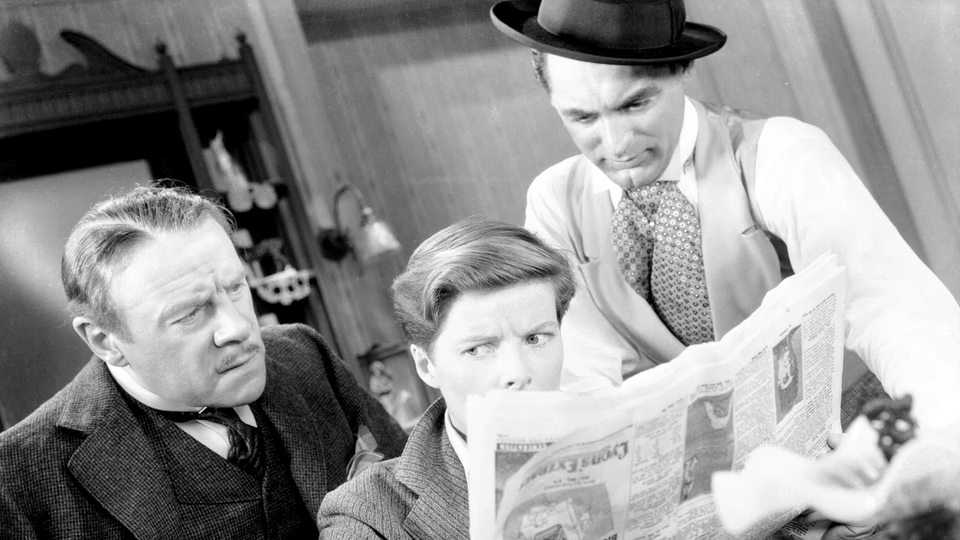Sylvia Scarlett

On the run in England with her embezzler father, a woman (Katharine Hepburn) disguises herself as a boy and joins up with a con man (Cary Grant).
Sylvia Scarlett would have been a lot better if one of the characters had punched Katharine Hepburn square in the face. Seriously, she’s annoying, arrogant, overblown, and off-putting from the start as she emotes through nearly every scene. By the halfway point, you’re clamoring for someone, anyone, to give her a good pop in the jaw.
Thus, as you can imagine, the film is hard to enjoy. It’s a bizarre mix of comedy and drama that, to its credit, eschews many of the obvious gags involving Hepburn in drag, but ends up neither funny nor particularly moving. Ultimately, its 95 minutes would be a total loss if it weren’t for Cary Grant.
Grant’s the lone bright spot, coming across as the sole likable character (despite the fact that, on paper, he’s the most crooked) and stealing all of his scenes from the camera-hungry Hepburn. Indeed, Sylvia Scarlett proved to be a breakout performance for Grant, and rightly so.
The film proved to be a disaster in theaters, and prevented director George Cukor from reuniting with Hepburn in her next film, the even worse Mary of Scotland. Further, it was one of the films that led to Hepburn being labeled “box office poison” by the end of the 1930s and, again, rightly so.